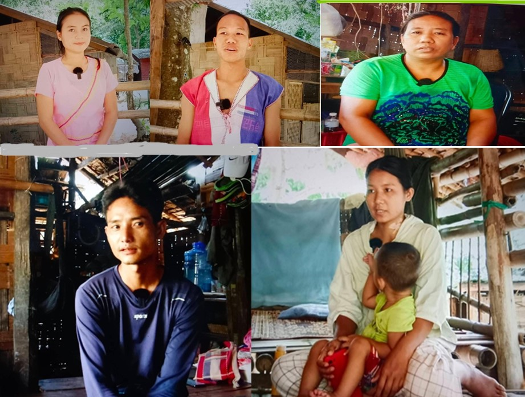What difficulties do Karenni refugees face and how have they struggled to survive in the Karenni refugee camp (1) on the Thailand-Myanmar border for more than 20 years. As refugees, what are their hopes for the future? Here are some voices of camp residents.
Maw Ko Mal (Age 25, deputy principal, Karenni National College (KnNC)
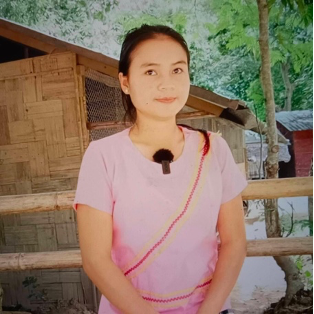
There are so many difficulties. First, the lack of educational opportunities. For example, our certificates are not recognized by neighboring countries. There are fewer opportunities to get educated abroad. There are fewer educated people in our community because the opportunities are limited. If we had more opportunities and the freedom to travel abroad, there would be more educated people in our community. Without access to education, we can’t educate ourselves. Job opportunities are also scarce. At present, food supply is gradually decreasing. Living conditions are becoming more and more limited. On the other hand, we see that the prices of goods and food are also gradually increasing. Since the compensation for the work in the camp is low, the food is not enough for daily life. We also notice increasing malnutrition. Above all, we can only hope that one day we will be able to leave for a third country. We want to escape this refugee life.
Khu Reh Reh (Age 23, School teacher)
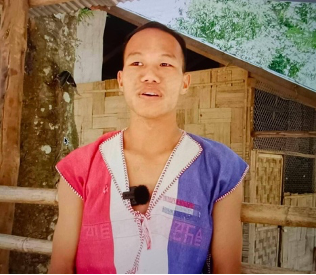
We have so many difficulties because it is very difficult to earn a regular income. Access to education is limited in this camp. We can’t get enough education. We can’t keep up with other countries. As a refugee here, it is not enough to be intelligent. In order for our future to improve, we must continue to strive and move forward. But I would like to return to our homeland, to our village one day. I don’t want to live here forever. I want to go back and help our villagers. I think about how we can help make our country better. I hope that one day our country will be better again.
Maw Su Mal (Age 50, Female refugee)
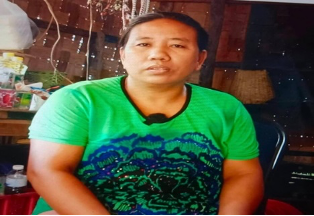
My parents are illiterate, so they make clothes and bags and sell them. With the proceeds, they buy meals and snacks for their children. They raise pigs and sell them for food. After living as refugees for a long time, food is no longer enough. It has gradually diminished. With the food cards, those who can’t work or are disabled only receive about 220 or 230 (baht). This is not enough. We have to earn extra money by working outside. We don’t have extra food supplies.
Khu Shar Reh (Age 33, Male refugee)
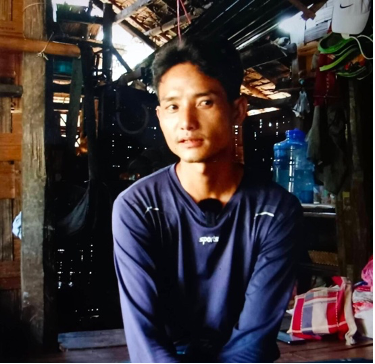
We face all kinds of difficulties, starting with basic needs. It is very difficult to get bamboo to repair the house. If someone in the family gets sick, it is very difficult to go to the clinic without a bicycle. There is no income. But I do odd jobs in the neighborhood and we use the money for food. Their supplies are not enough. I get some financial support. My wife works in a clinic. Then we make traditional weavings and send them to our relatives. They send back pocket money for the children. If we get the opportunity to resettle through the UN, we will go for the sake of our children’s future. For ourselves, it is not so important. But we will go for the education of our children.
Maw Mi Mal (Age 26, Female refugee)
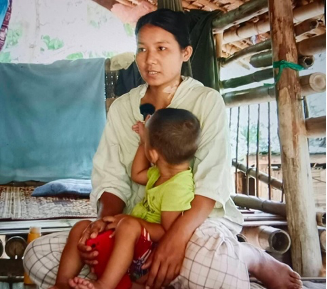
In our family, it is not enough that only I work. My husband is unemployed, so it is not enough for our living. In order for our future to be better, I plan that if we have a chance to move to the U.S., we will go there to give our children an education and a future.
Sent by Kantarawaddy Times

